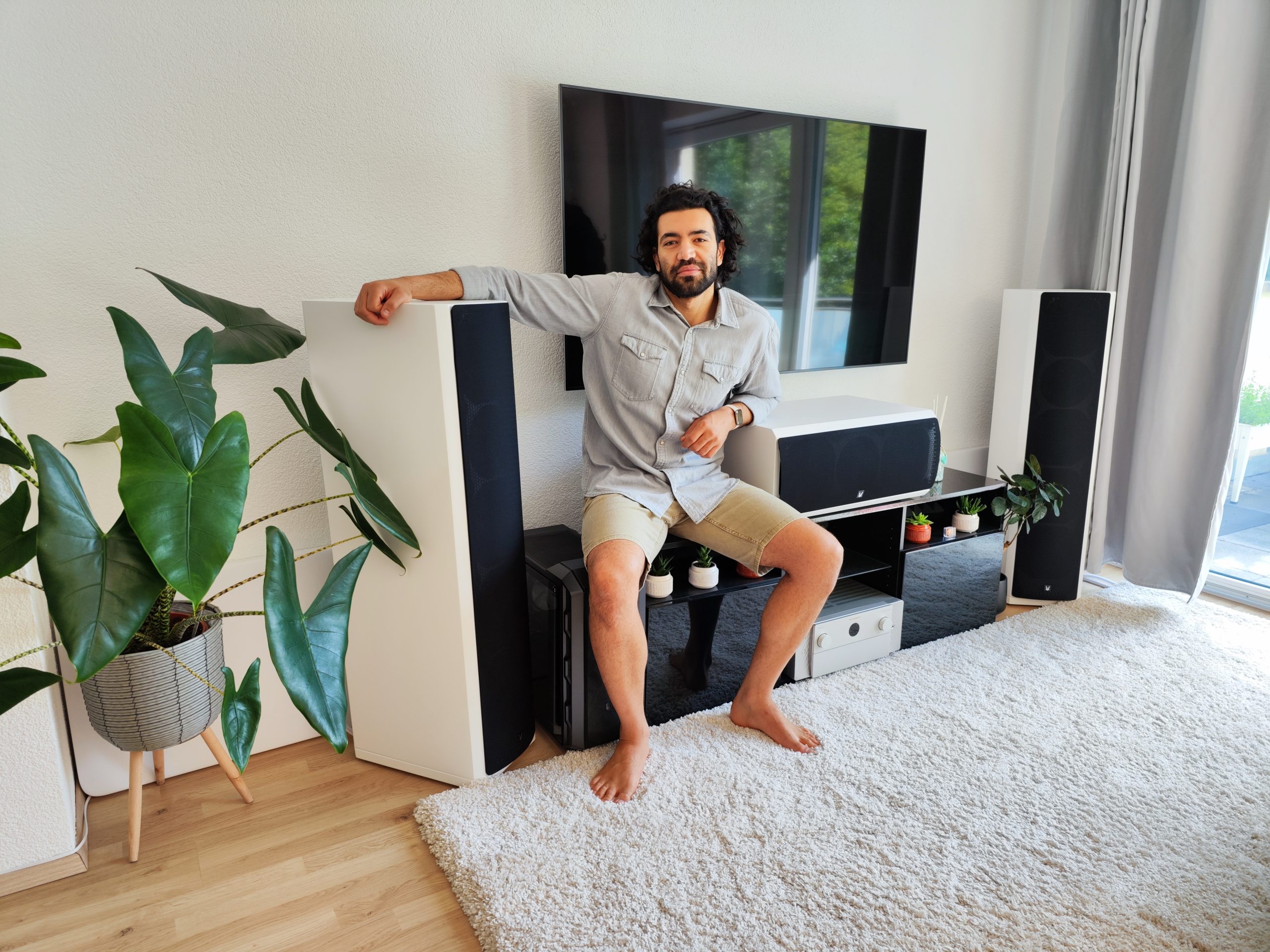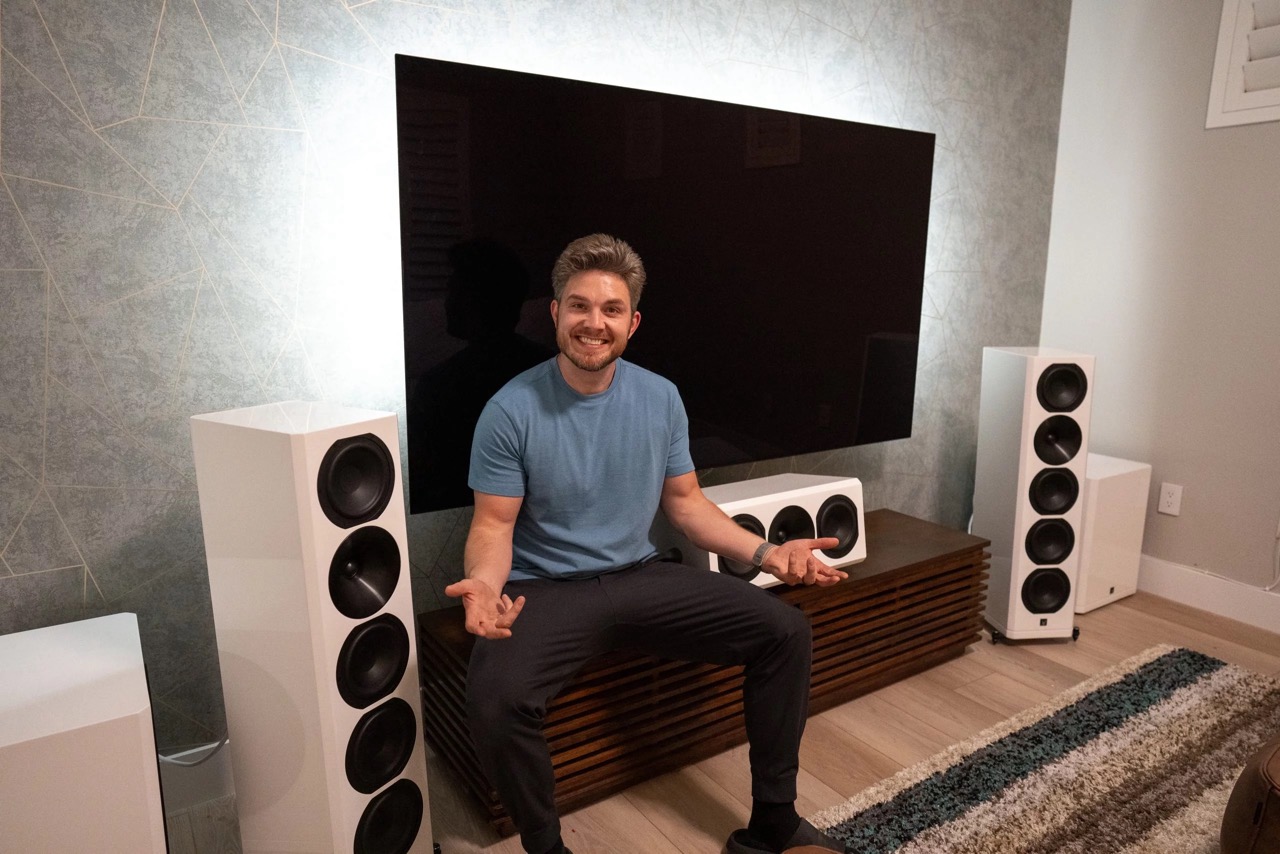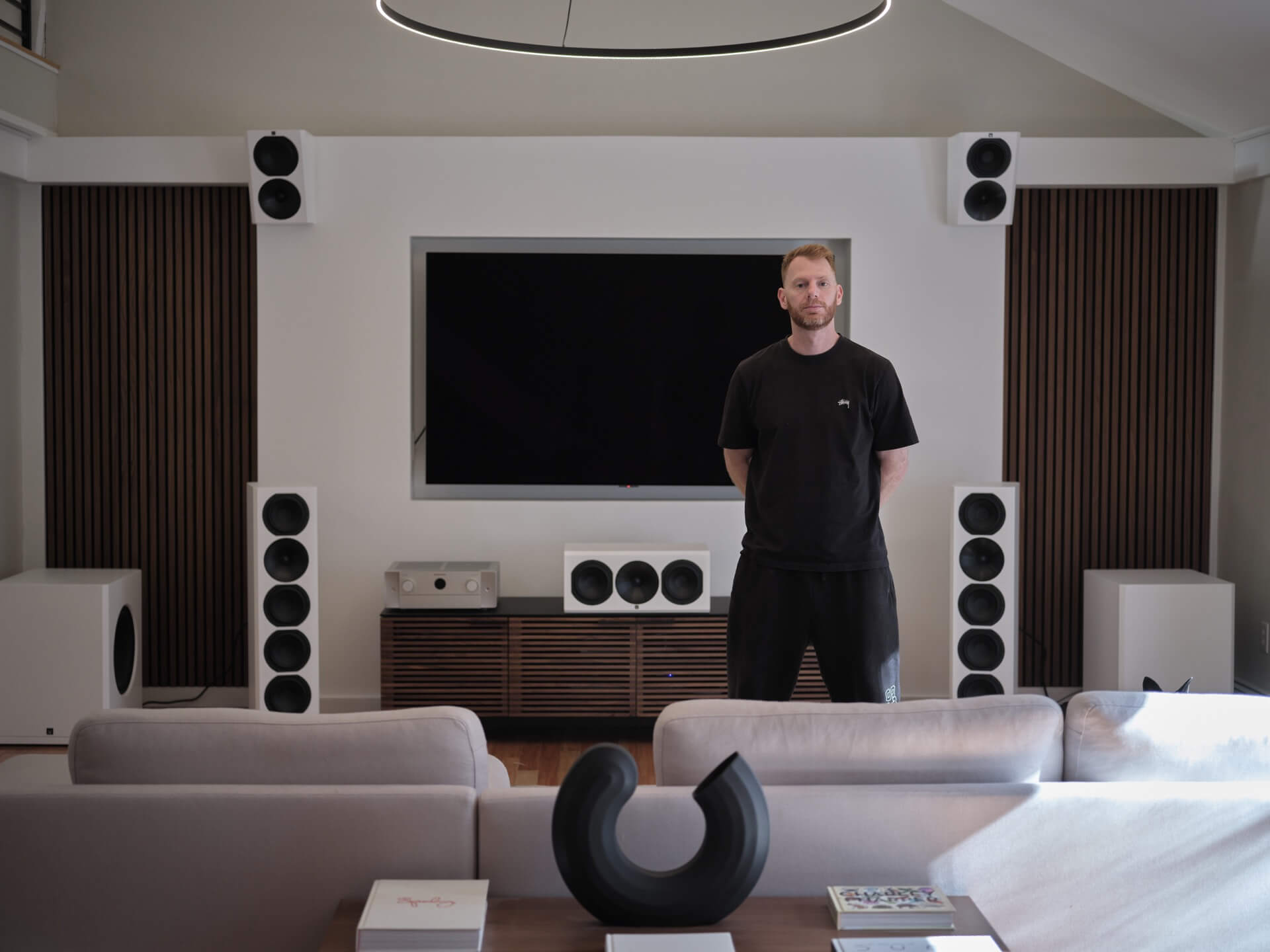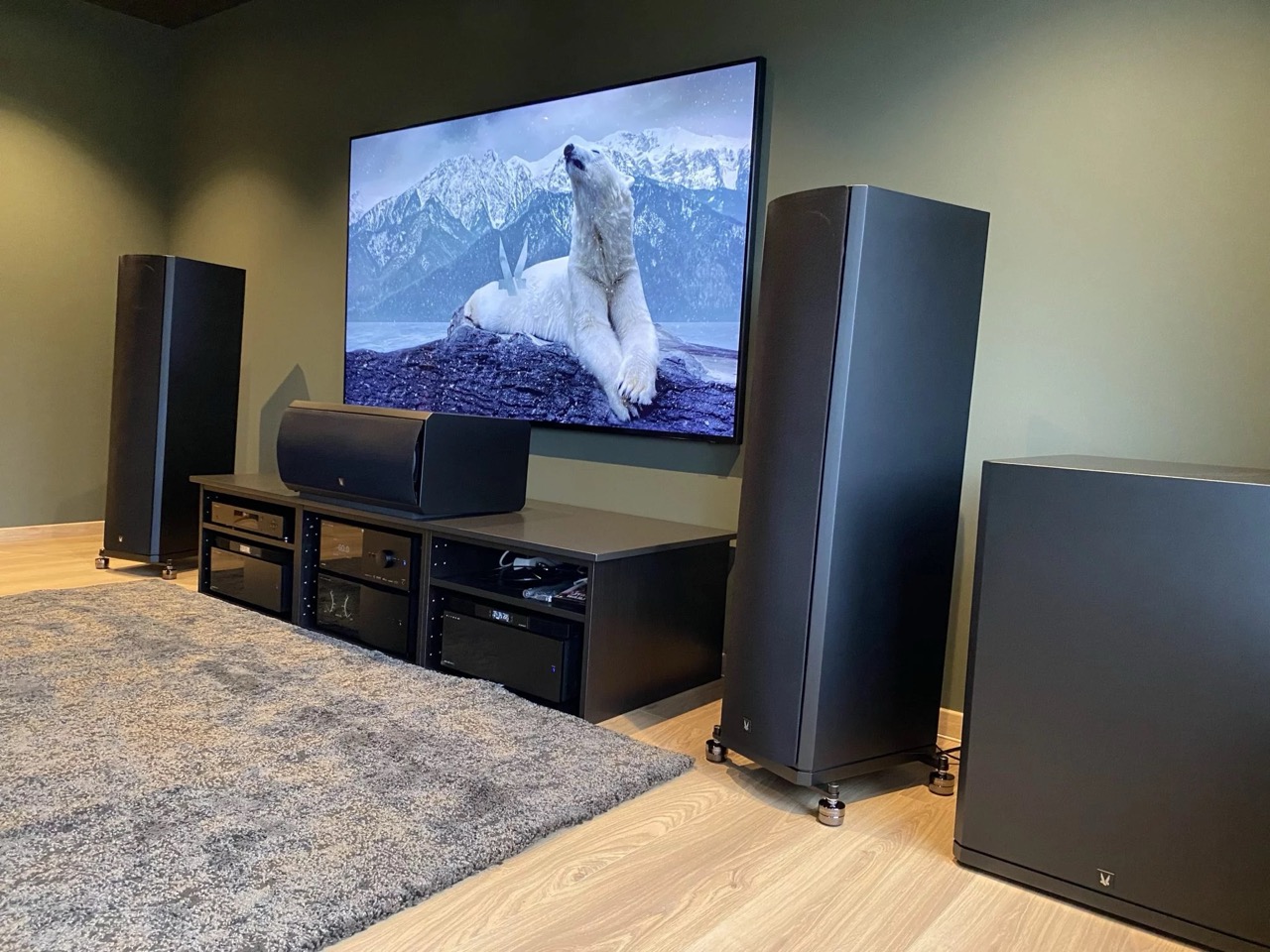Integrating Smart Home Technology in Your Home Theater
Article summary - TL;DR
- Smart home integration brings convenience and control to your home theater experience.
- Customize your viewing environment with automated settings for different activities like movie nights or gaming sessions.
- Consider the compatibility and user-friendliness of smart systems for seamless operation.
- Enhance your audio-visual setup with the 1723 Tower THX, delivering cinematic audio quality in your home theater.
- Stay updated on technology and join communities to enhance your smart home theater journey.
The Importance of Smart Home Integration
Integrating smart home technology into your home theater adds an unmatched level of convenience and control. It allows you to create the perfect viewing environment with the touch of a button or a simple voice command. Gone are the days of juggling multiple remotes or manually adjusting lights and sound. Smart home technology streamlines your multimedia experience, making it more immersive and user-friendly.
Smart home integration also offers customization options that traditional home theaters cannot match. Users can create scenarios and presets to set the mood for different types of content – be it a movie night, a sports event, or a gaming session. Each setting can adjust the lighting, temperature, and audio to cater to the specific activity.
Moreover, smart home technology adds value to your property. As homes get increasingly connected, a home theater with smart features can be a significant selling point. Convenience, customization, and future-proofing are just a few reasons why smart home integration is crucial for modern home theaters.
Choosing the Right Smart Home System
Selecting the right smart home system for your home theater requires consideration of several factors. First, compatibility with your existing devices is essential. Ensure that the system you choose works seamlessly with your projector, screen, audio setup, and any other multimedia devices you plan to use.
Second, the system’s user interface should be intuitive and user-friendly. You want a system that all family members can operate, regardless of their technical aptitude. Consider systems with straightforward smartphone apps, voice control capabilities, and customizable widgets or controls for easy access to common actions.
Lastly, consider the expandability of the system. As technology evolves, you may want to add more devices or upgrade existing ones. Opt for a system that supports a wide range of products and is known for regular updates. Popular ecosystems like Apple HomeKit, Google Home, or Amazon Alexa have a vast array of compatible devices and frequently introduce new features and improvements.
Lighting Control and Automation
Lighting control is a central aspect of smart home integration in a home theater setup. Automating lighting can create the perfect ambiance and enhance the viewing experience. Dimmable smart lights can be set to lower gradually as the movie begins, and motion sensors can dim or turn lights off when the room is unoccupied.
Integration with smart shades or blinds can also be beneficial. Windows can be covered automatically to reduce glare and create a darkened theater environment during daytime viewings. Many systems allow users to control shades with their voice or preset times for them to open and close.
Color-changing bulbs add an extra layer of customization, being able to change the color of the room to match the mood of the content or personal preference. Everything can be controlled via a smartphone app or voice commands, providing a seamless and futuristic movie-watching experience.
Audio and Visual Integration
Smart home theater setups provide exceptional control over audio and visual components. Sound systems can be fine-tuned using apps, with settings for surround sound configurations and audio profiles for different types of media. Connecting your smart TV or projector to your smart home network also opens up possibilities for voice-activated controls or automation based on viewing habits.
Integration with streaming services through smart devices means you can start a movie on your phone and send it to your home theater screen with a simple tap. Visual settings like brightness and contrast can be adjusted based on the content being watched or the time of day, ensuring the best possible picture quality.
For audiophiles, connecting smart speakers throughout the home can allow for a multi-room audio experience. You can start watching a movie in the living room, and continue listening to the audio in another room without skipping a beat.
Climate Control and Comfort
Climate control goes beyond basic comfort; it affects how immersed you become in your cinematic experience. Smart thermostats can adjust the room’s temperature to the ideal setting for watching movies without you having to leave your seat. This is particularly convenient for longer viewing sessions where the temperature may need to adjust over time.
Smart home systems can also be set to work with electric fireplaces or heaters, adding warmth to the room for cozy movie nights. Conversely, smart fans or AC can be activated during intense action scenes or on hot days to keep the room cool and comfortable.
Additionally, automated scent diffusers can elevate the experience even further by releasing pleasant aromas during specific scenes, matching the atmosphere of the movie to the theater environment.
Security and Safety
With high-end equipment in your home theater, security becomes a priority. Smart home integration can include surveillance cameras that you can monitor from your smartphone, ensuring that your home theater is secure, whether you’re at home or away.
Smart locks and security systems can be programmed to secure your home theater equipment. Access can be restricted to selected individuals or can be opened remotely for guests or family members without compromising overall security.
Smoke and carbon monoxide detectors should also be integrated into your smart home system. They can alert you to potential dangers, giving you peace of mind that your home theater is not only a place for entertainment but also a safe space for your family and friends.
Seamless Control with Automation Scenes
Automation scenes are sequences of events triggered by a single command or action. For example, saying “movie mode” could dim the lights, lower the projector screen, turn on the sound system, and set the temperature to a comfortable level. This ease of setup is one of the key benefits of smart home integration in home theaters.
Scenes can be customized to fit any routine. A “gaming night” scene might prefer brighter lights and a “date night” scene might include soft lighting and warm temperatures. Smart home systems are designed to cater to these diverse needs effortlessly.
Integration with voice assistants takes this convenience to the next level. Instead of pulling out your phone, you can speak directly to your home assistant to activate any scene or adjust settings as needed.
Challenges and Considerations
While integrating smart technology into a home theater system has many advantages, it also comes with its own set of challenges. Ensuring a robust and reliable Wi-Fi connection throughout your home theater is essential; smart devices depend on internet connectivity to function properly.
Privacy and security are also critical concerns. As we connect more devices to our home networks, it’s important to follow best practices for network security and be aware of the data being collected by smart devices. Regular updates and strong passwords are a must.
Moreover, be mindful of the learning curve associated with new technologies. While smart home systems are designed for user-friendliness, they still require some acclimation. It’s important to spend time learning the features and capabilities of your system to make the most out of your investment.
Keeping the Home Theater Up-to-Date
Technology advances rapidly, and your smart home theater setup will need occasional updates to remain current. Regular software updates for your devices are necessary to improve features, fix bugs, and maintain security.
Investing in equipment from reputable brands that support their products long-term can help ensure that your home theater will not fall behind the technological curve. These companies often provide comprehensive support and seamless integration with major updates to smart home systems.
Lastly, consider joining online communities or forums dedicated to home theater enthusiasts. Such platforms can be a valuable resource for sharing tips, receiving advice, and staying informed about the latest trends in home theater innovations.
Conclusion
Integrating smart home technology into your home theater system significantly enhances the cinematic experience. It provides control, convenience, comfort, and a touch of magic that takes your viewing experience to the next level. By understanding and utilizing the full capabilities of smart home integration, you can create a home theater that is not only state-of-the-art but also a true reflection of your lifestyle and preferences.
Whether you’re a tech-savvy cinephile looking to push the boundaries of what’s possible or a casual movie watcher seeking more convenience and control, smart home technology is a valuable addition to any home theater. With careful planning and consideration of the solutions that best fit your needs, you can build a seamless and integrated environment that stands the test of time.
Begin your journey towards a smarter home cinema today, and enjoy the enhanced immersion and comfort that only a connected home theater can offer. Happy viewing!
Frequently asked questions
What are the benefits of integrating smart home technology into a home theater?
Smart home technology offers convenience, customization, and enhanced control over your home theater, allowing for a personalized viewing environment with just a button or voice command.
How can I choose the right smart home system for my home theater?
Look for compatibility with your existing devices, an intuitive user interface, and expandability options to accommodate future technology upgrades.
What role does lighting control play in a smart home theater?
Lighting control enhances the viewing experience by allowing automation of dimming, using smart shades to reduce glare, and customizing colors to match content mood.
How can smart audio and visual integration improve my home theater experience?
It allows for fine-tuning audio settings, streaming from devices seamlessly, and adjusting visual settings for optimal quality based on content and time of day.
What are the climate control options available in smart home theater setups?
Smart thermostats adjust room temperature for comfort, while integrate heating and cooling systems ensure an ideal environment throughout longer viewing sessions.
How can I ensure security in my smart home theater?
Implement surveillance cameras, smart locks, and integrate smoke detectors to monitor safety and control access to your valuable home theater equipment.
What are automation scenes and how do they enhance a home theater experience?
Automation scenes allow you to trigger multiple settings, like lighting and temperature, with a single command, creating a seamless transition into your chosen activity.
What challenges should I consider when integrating smart home technology?
Challenges include ensuring a strong Wi-Fi connection, managing privacy and security concerns, and familiarizing yourself with new technologies and updates.
How can I keep my smart home theater system up-to-date?
Regularly update your devices, choose reputable brands with long-term support, and engage with online communities for the latest trends and innovations in home theater technology.








